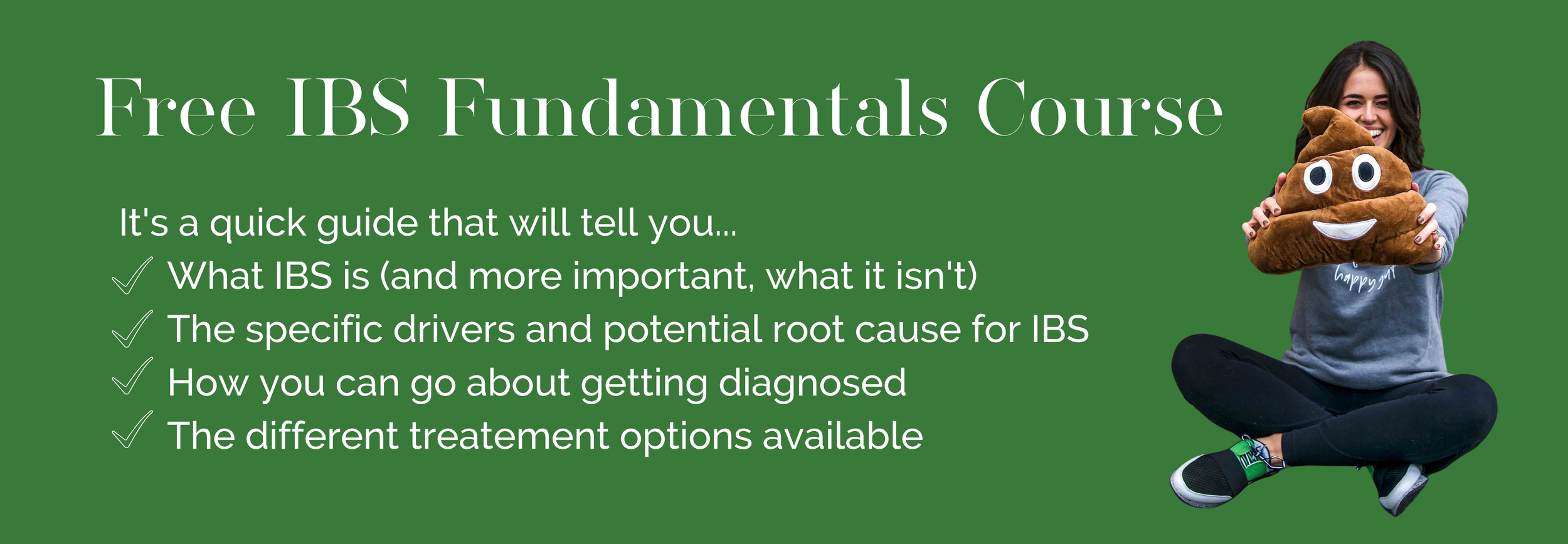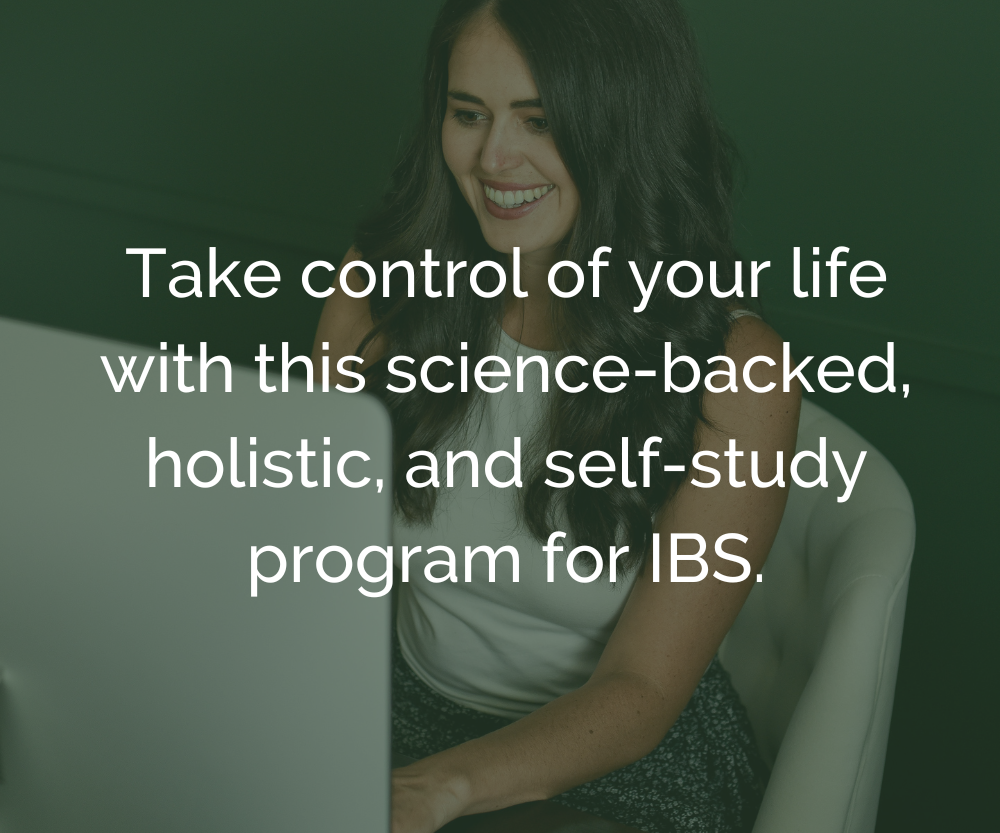Why Coffee May Make Your IBS Symptoms Better or Worse
When you see a picture of coffee, do you start thinking about the pleasant aroma and bold flavor? Or, does your mind immediately go to you rushing to the bathroom?
People with IBS can have very different relationships with coffee, depending on the effects they experience when they drink it. Coffee is low FODMAP, so it’s not completely off limits on a low FODMAP diet, but it can either make symptoms much better or much worse for those with IBS. Many people think that coffee is ultimately “bad” for IBS so they eliminate it without actually knowing if it can work for them.
About 26-40% of those with IBS claim coffee as a trigger for diarrhea and stomach pain. Why? A chemical called chlorogenic acid in coffee stimulates the gut to function more quickly, increasing gut motility. For those with IBS-D, this can be problematic because gut motility is already faster than it should be. This is also problematic for those with IBS who are experiencing anxiety or high levels of stress, because that tends to create a more spasmodic effect for the gut, and caffeine may make that worse. Caffeine can also increase heart rate, which may heighten the stress response, and then causing more symptoms.
For those with IBS-C, the stimulating effect from coffee can be helpful to get the bowels moving each morning. There is a limit, though, as too much caffeine can lead to abdominal cramps, even for those with IBS-C.
So, is coffee “good” or “bad” for IBS? Depends on your symptoms, how much you’re drinking, and when you’re drinking it!
What’s your poop personality? Find out here!
How much should you have?
Before deciding whether or not to have or eliminate coffee for good, take it away for a week or two, then reintroduce it in a small portion. Slowly increase your portion to test your tolerance. If coffee doesn’t seem to trigger your symptoms, then you should be safe to incorporate it into your life.
If you do decide to include coffee, keep your caffeine intake to around 400 mg per day, or less. Most people complain of coffee first because it is highest in caffeine, but other caffeine sources can still become problematic in larger amounts.
Sources of caffeine:
8 oz coffee 95-165 mg
8 oz cold brew 100-150 mg
8 oz decaf coffee 2-5 mg
1 oz espresso 47-64 mg
8 oz black tea 25-48 mg
8 oz green tea 25-29 mg
8 oz soda 24-46 mg
50 g dark chocolate 21 mg
Energy drinks (varies by brand)
Pre-workout supplements (varies by brand)
What about the acidity of coffee?
A lot of people will say that drinking less acidic coffee, like cold brew, is more tolerable. While the caffeine may be the same, the acidity of the coffee can lead to stomach pain and indigestion. These aren’t necessarily IBS symptoms, but can still be frustrating and uncomfortable. Like you would with caffeine, test your tolerance for the acidity in coffee by taking it away for a while, then introducing small amounts at a time.
It is thought that cold brew coffee is less acidic than hot brewed coffee, which may explain why some with IBS claim that they tolerate cold brew better. This can be helpful to try, although it’s important to note that the levels of acidity can depend on brewing methods and the type of coffee bean used. Many times, cold brew is packaged in larger portions than hot coffee, so it would still be a good idea to be mindful of the portion to test your individual tolerance.
In working with clients with IBS, I typically see an improved tolerance to coffee as we implement clear strategies for reducing symptoms, including dietary and lifestyle changes. Typically, if a client wants coffee in his or her life, we are able to make it happen in some way, based on their personal tolerance and their intuition with how their gut is doing each day. If you’re looking for more personalized guidance in managing your symptoms and building a life that you enjoy and that supports your gut apply for a consult call here to learn more!
Are you frustrated with your IBS symptoms? Do you desire to be confident in your food choices? Do you want to have a healthier relationship with your body and diet? Are you ready to take control of your IBS?



